
The Truth About Antidepressants: Risks, Myths, and Alternatives
The Truth About Antidepressants: Risks, Myths, and Alternatives
Depression and anxiety are deeply challenging experiences, and millions of people turn to antidepressants in search of relief. However, the prevailing narrative around these medications—particularly the idea that they correct a "chemical imbalance"—has been widely disputed by leading researchers, including Professor Joanna Moncrieff, a critical psychiatry expert at University College London.
This article examines:
- The three most prescribed antidepressants in Australia
- The lack of evidence for the chemical imbalance theory
- All potential risks and side effects, including sexual dysfunction (during and after use)
- The increased risk of suicidality
- Informed consent—what patients are (and aren’t) told
- Chinese medicine’s holistic approach to depression and anxiety
1. The Three Most Prescribed Antidepressants in Australia
The top three antidepressants prescribed in Australia are:
1. Sertraline (Zoloft) – An SSRI (selective serotonin reuptake inhibitor)
2. Escitalopram (Lexapro) – Another SSRI
3. Venlafaxine (Effexor) – An SNRI (serotonin-norepinephrine reuptake inhibitor)
These drugs are widely prescribed despite serious concerns about their efficacy, side effects, and long-term consequences.
2. The Myth of the ‘Chemical Imbalance’ Theory
For decades, the public has been told that depression is caused by a "serotonin deficiency"—a claim that has no solid scientific basis.
- Joanna Moncrieff’s research (2022) conducted a major umbrella review of serotonin studies and found no evidence linking serotonin levels to depression.
- The chemical imbalance theory was a marketing tool, not a scientific discovery.
- Antidepressants do not "fix" a deficiency—they alter brain chemistry in ways that are not fully understood.
"The serotonin theory of depression has been one of the most influential and widely promoted biological explanations for mental illness, yet the evidence does not support it."
— Moncrieff et al., 2022 (Molecular Psychiatry)
3. The Full Range of Risks and Side Effects
Antidepressants come with a long list of potential harms, many of which are underplayed by prescribers.
Common Side Effects:
- Nausea, headaches, dizziness
- Weight gain
- Emotional blunting (feeling emotionally "numb")
- Insomnia or excessive sleepiness
- Increased anxiety or agitation
Sexual Dysfunction (During and After Use)
- SSRIs frequently cause:
- Loss of libido
- Erectile dysfunction
- Difficulty achieving orgasm
- Genital numbness
- Post-SSRI Sexual Dysfunction (PSSD):
- Some patients report permanent sexual dysfunction even after stopping the drug.
- A 2020 study found that PSSD can persist for years, with no known cure. (Bala et al., International Journal of Risk & Safety in Medicine)
Increased Risk of Suicidality
- SSRIs and SNRIs carry a "black box" warning (the strongest FDA warning) for increased suicidal thoughts and behaviours, especially in young adults under 25.
- A 2004 FDA analysis found that antidepressants double the risk of suicidality in children and adolescents.
Withdrawal Effects (Discontinuation Syndrome)
- Many patients experience severe withdrawal when trying to stop:
- Brain zaps (electric shock sensations)
- Severe mood swings
- Rebound depression/anxiety
- Some doctors mistake withdrawal for "relapse," leading to unnecessary long-term use.
4. Informed Consent: What Patients Aren’t Told
Many patients are not properly informed about:
- The lack of evidence for the chemical imbalance theory.
- The high likelihood of sexual dysfunction (and the risk of PSSD).
- The potential for severe withdrawal symptoms.
- The modest benefits—studies show antidepressants are only marginally better than placebo for mild-to-moderate depression.
True informed consent means:
· Discussing non-drug alternatives (therapy, lifestyle changes, Chinese medicine).
· Explaining all risks, not just the most common ones.
· Acknowledging that these drugs do not "cure" depression—they mask symptoms and should only be used for a short time in conjunction with non-drug therapies.
5. The Chinese Medicine Approach to Depression and Anxiety
Chinese medicine views depression and anxiety as imbalances in the body’s blood and Qi (vital energy) and organ systems, particularly the Liver, Heart, and Spleen.
Key Approaches:
1. Acupuncture – Regulates Qi, reduces stress, and balances neurotransmitters naturally.
- Studies show acupuncture can be as effective as SSRIs for mild-to-moderate depression. (Zhang et al., 2019, Journal of Alternative and Complementary Medicine)
2. Herbal Medicine – Formulas like Xiao Yao San (Free and Easy Wanderer) help with mood regulation, irritability, and stagnation.
3. Diet and Lifestyle – Addressing sleep, exercise, and emotional expression is central.
4. Yoga, Qi Gong and Tai Chi – Movement therapies that reduce cortisol and improve emotional resilience.
Why This Matters:
- Chinese medicine does not pathologise normal human suffering—it seeks to restore balance rather than suppress symptoms.
- It offers long-term solutions without the risks of pharmaceuticals.
Conclusion: A More Honest Conversation About Mental Health
Antidepressants can help some people, but they are far from harmless. Patients deserve:
- Full transparency about risks.
- Access to non-drug therapies (CBT, acupuncture, lifestyle changes).
- The right to make truly informed choices.
If you or a loved one are considering antidepressants, ask hard questions, research alternatives, and seek holistic care where possible.
References
1. Moncrieff, J., et al. (2022). The serotonin theory of depression: a systematic umbrella review of the evidence. Molecular Psychiatry.
2. Bala, A., et al. (2020). Post-SSRI Sexual Dysfunction: A Literature Review. International Journal of Risk & Safety in Medicine.
3. FDA. (2004). Antidepressant Use in Children, Adolescents, and Adults.
4. Zhang, Z., et al. (2019). Acupuncture for Depression: A Systematic Review and Meta-Analysis. Journal of Alternative and Complementary Medicine.
The Dancing Crane Acupuncture website, social media and newsletters, offers insights rooted in Classical Chinese Medicine and Holistic Health principles. This content is for educational purposes only and should not replace personalised medical advice or treatment. For tailored guidance, we recommend consulting a qualified natural healthcare practitioner or licensed medical professional.
The Dancing Crane Acupuncture website, social media and newsletters, offers insights rooted in Classical Chinese Medicine and Holistic Health principles. This content is for educational purposes only and should not replace personalised medical advice or treatment. For tailored guidance, we recommend consulting a qualified natural healthcare practitioner or licensed medical professional.
